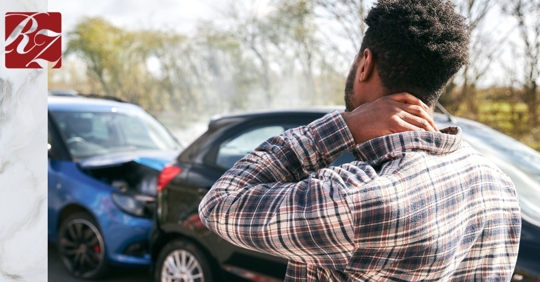Each year, there are approximately 5.25 million car accidents in the United States, according to the National Highway Traffic Safety Administration (NHTSA). Car accidents can turn your life upside down, and knowing what to do after one can be confusing. While a car crash can be disorienting, knowing what steps to take to protect yourself is important. Our Rockford personal injury attorneys discuss the steps to take after a not-at-fault car accident and how to prepare for a personal injury claim.
Safety First
It is vital to assess the situation after a car accident and ensure that you and your passengers are protected. Your safety should be your first priority. Take the following precautions to ensure everyone's safety:
- Stay away from the flow of traffic if you can
- Use your hazard lights
- Check for injuries
- Stay calm
Call 911 for medical assistance if you or your passenger need it. In the event of a hit-and-run, do not leave the premises. Chasing after the at-fault driver can be extremely risky. You should instead call the police and report the incident.
Contact The Police
In the claims process, a police report is invaluable, even if a minor accident occurs. A police report can help you hold the at-fault driver responsible for the damages and costs associated with the accident. Each party will be asked questions about what happened - be polite, concise, and honest.
Document Everything
Pictures and videos can be beneficial as evidence in your personal injury case. If disputes arise regarding what occurred, videos and pictures will be valuable as evidence. Be sure to capture:
- The position of the vehicles involved
- Damage to your vehicle
- The surrounding area where the accident occurred
- License plates of the vehicles involved
If you find anyone who witnessed it, don't let them go! Write down their names and contact information. If you cannot document due to injury, you can find out later if surveillance cameras or traffic cameras caught the accident.
Exchange Insurance Information
While you wait for law enforcement, exchange insurance information with the at-fault driver. Get the following information from the other driver:
- Name,
- Phone number
- Address
- Insurance company and policy number
- Driver's license number
Remember, never admit fault. "I'm sorry" can be construed as evidence of liability and used against you as leverage.
Contact Your Insurance Company
Contacting your insurance provider right away is essential. In the event that you need medical coverage, filing a claim with your insurance will accelerate the process. Many policies require immediate reporting and complete cooperation. However, we understand that dealing with insurers, especially after a collision, can be a hassle.
You don't have to deal with insurance companies on your own. You will benefit from the support and guidance of a personal injury lawyer, who will handle all communication with the involved insurance companies. A lawyer will:
- Evaluate your case and determine how much settlement you may receive.
- Gather evidence to prove the seriousness of your injuries.
- Negotiate with your insurance provider to ensure a fair settlement.
- Prepare for litigation if the defendant's insurance company does not offer an appropriate settlement amount.
Insurance companies often take claims more seriously if you have legal representation.
Get Legal Representation!
Automobile accidents can have a significant impact on your finances and health. Dealing with insurance companies alone can be challenging and time-consuming. [Sub:BusinessName] offers you the legal guidance and settlement you deserve from an experienced team of personal injury lawyers.
To schedule a consultation with our team, do not hesitate to contact us today through our website or give us a call at (815) 987-4050!
The blog published by Reno & Zahm LLP is available for informational purposes only and is not considered legal advice on any subject matter. By viewing blog posts, the reader understands there is no attorney-client relationship between the reader and the blog publisher. The blog should not be used as a substitute for legal advice from a licensed professional attorney, and readers are urged to consult legal counsel on any specific legal questions concerning a specific situation.

